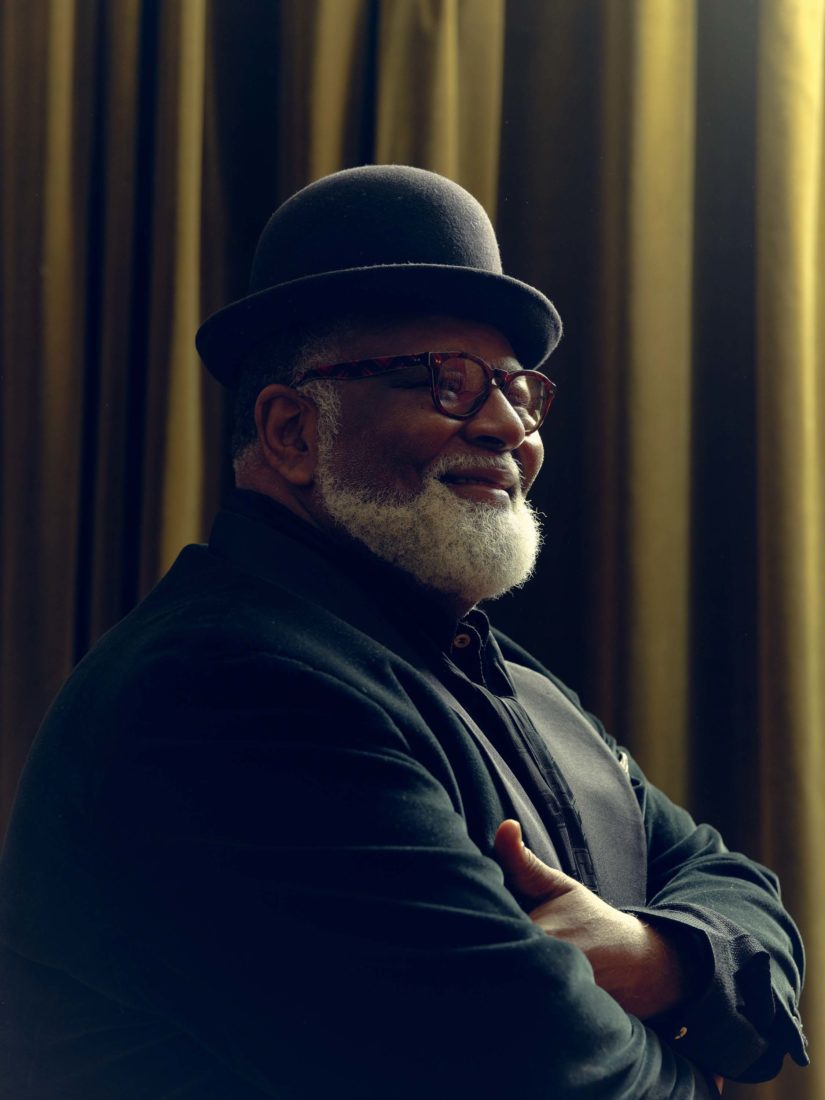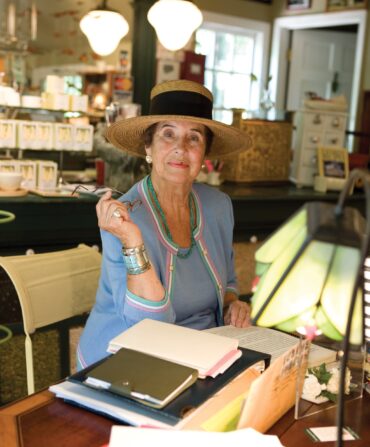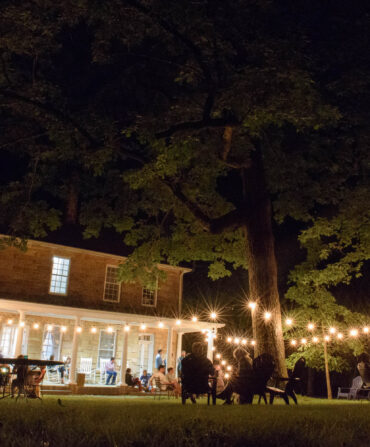Alexander Smalls has crammed his corner apartment in Harlem with color—leopard-print cushions dot yellow couches, and jewel-colored drapes from his travels in Ghana sweep the floor—creating a warmth that matches the acclaimed chef and restaurateur’s welcome. As he enters his kitchen, dubbed his “laboratory,” to prepare something to eat, classical music at turns lulls and roars, apropos—his first act as a baritone earned him a Grammy and a Tony for a cast recording of Porgy and Bess. Smalls, a native of Spartanburg, South Carolina, traces both of those passions to his family’s roots there and in the Lowcountry, and the heritage coastal recipes he was raised on.

As Smalls, now sixty-eight, traveled the world performing arias as a young man, he began taking culinary classes and eventually opened his own catering company. His first restaurant, Café Beulah, debuted in New York in 1994, and with it and each successive opening (including the Cecil, hailed as Esquire’s “Best New Restaurant in America”) and cookbook (such as the James Beard Award–snagging Between Harlem and Heaven), he has sought to emphasize what he calls “Southern Revival” cooking, and to champion the contributions of people of the African diaspora. In February, Smalls releases his latest cookbook, Meals, Music, and Muses: Recipes from My African American Kitchen, and a passion-project album, The African American Songbook, Volume I, both of which continue to cement his legacy as an undersung hero of music, food, culture, and history.
You’ve been called a culinary historian, a foodways preservationist, and a social minister. How do you define yourself?
I am a culinary activist for the African diaspora—people of color who essentially had been pushed out and suppressed in the story line of America’s great culinary tradition. But at the heart of it all I’m an artist—a raconteur. I love telling stories, no matter the medium.
That includes stories of your ancestors—the photos of them on your wall here at home once adorned the walls of Café Beulah.
These people made me who I am. This is my aunt Laura; she was my first piano teacher in Spartanburg. This is my father—he was about twelve years old here, and he was trying to be grown, wearing fake glasses. [Laughs.] For years our family thought we had Cherokee in our blood. When I opened Café Beulah, customers would come in and say, “Who are these Jewish people?” I would explain the photos were of my family. I did my DNA—I’m 30 percent Jewish and zero North American. I knew Grandma was, or so I thought, Indian, Scottish, and African. The Jewish bit was a big surprise, but one of the first synagogues in the States was in Charleston. Supposedly Smalls is from Smallstein, a Jewish merchant. DNA is taking us places we thought we would never go.
Every square inch of your apartment is filled with memorabilia. What piece is on your mind at the moment?
Toni Morrison invited me to go with her when she received the Nobel Prize, and because I had just opened the restaurant, I couldn’t get away. So as a gift, two weeks later this plaque arrived. She wrote, “To Alexander, with pleasure,” because I wasn’t able to be there. When she passed, I posted it on Instagram, and I think about it here, a lot.
You’ve opened a series of lauded restaurants, but you won your first James Beard Award in 2018 for the cookbook Between Harlem and Heaven, which you cowrote with your mentee, the chef JJ Johnson. What did that recognition mean to you?
The James Beard Award represents validation for a career that has been expansive over thirty years, and has been mostly ignored by the establishment. Still, I didn’t get into this profession to win awards—I got into it because I had a passion for it.
Yet here you are with a Grammy, a Tony, and a James Beard.
Life is funny that way! I’m passionate about what I decide to pursue. Even with writing, it comes to me like a song—if I have the first two words, everything else just flows. I bring the same insights, instincts, and talents to food that I bring to music.
Your new book departs from your past cookbooks—comfort foods are found under “Spirituals,” and audacious mains like oven-fried baby chickens with hot mustard apricot jam are listed under “Divas,” with an accompanying playlist.
In [my first cookbook] Grace the Table, I was introducing myself, and I was doing so in the arms of my ancestors and the growing-up experience. Take the lamb meat loaf recipe: My mother used to say, “Hide half the kitchen—that boy puts every ingredient in everything he makes,” but that was my process. In Between Harlem and Heaven, I was defining a culinary concept that I had created based on an expanded narrative of Lowcountry cooking that I call “Southern Revival” cooking. I follow the slave routes, and the course of Africans on five continents, and how their cooking techniques and ingredients changed food. With Meals, Music, and Muses, I’m at the point where I can break the rules. This book allows music to curate the culinary experience. None of the recipes in this book are heirlooms—this is not your mama’s kitchen. I’m older, I have a view, and now I’m presenting that to you.
That view informed your music project too. What served as the impetus behind The African American Songbook, Volume I?
My great concern was the extinction of African American song practices and music. Jazz is dying a slow death. More frightening and uncomfortable to me is the death of the Negro spiritual—the creative genius of enslaved people who were not allowed to gather unless it was about religion. This has rested on my heart for years, and I wondered what I could do about it. So I teamed up with two extraordinary producers, Robert Sadin and Ulysses Owens Jr., and I’m taking Negro spirituals and creating a modern setting for them. I’m taking them out of the gospel church idiom and putting them in a jazz landscape.








